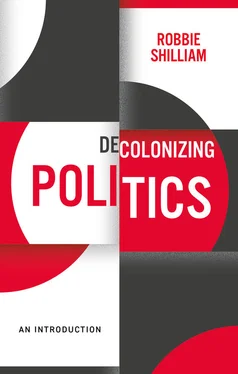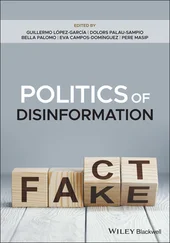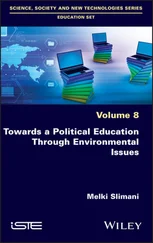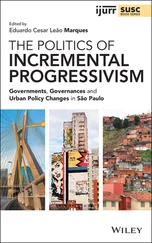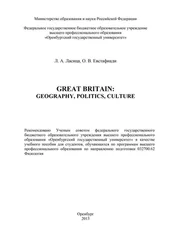This is the kind of question that I’ll be returning to in every chapter and especially in the book’s conclusion. For now, it’s important to realize that such a question would be outside the logic of Aristotle’s critical conversation with Athenians. Slaves have no capability to collective deliberate, barbarians, no culture through which to do so, and women no semen. By this reasoning, who would ever presume that these lesser subjects could conceptualize the good life differently – perhaps even more reasonably and justly? Which leads to another question: what goes un-thought of due to Aristotle’s constraining logic?
There exists a strong possibility that Aristotle’s discussion of the natural slave is directed against a social movement that, shortly before his time, regarded slavery as an affront to natural law. An influential rhetorician called Alcidamas had claimed that “the divinity … left everyone free, nature made no one a slave” (Cambiano 1987, 31). This claim still resonated across Aristotle’s political landscape. How large was this anti-slavery movement? Who comprised it? What did slaves think of it, and did they contribute intellectually to a conception of the polis that did not accept the moral worth of patriarchal hierarchy, as Aristotle did? Might their thoughts and actions have resonated so much in Aristotle’s age that he felt they required a response (see Burns 2003)?
It is difficult to reconstruct in any detail the anti-slavery movement in fifth-century Athens. Perhaps ancient Greece is too far away. But our own colonial and imperial legacies are not. 1492, the year in which Columbus began the imperial conquest of what we now call the Americas, is as close to us as the Roman building of Hadrian’s Wall is to Aristotle’s birth. The time between our current decade and the formal end of most European empires is actually less than the span of Aristotle’s lifetime. Expanding our geographical and historical vistas to match an inquiring imagination helps us to think politics anew.
For instance, it is not only possible to trace a tradition of black abolitionism in the Americas; we can also reconstruct African conceptions of the good life predicated upon the outlawing of slavery. In 1965, Youssouf Tata Cissé transcribed an Oath of the Mande Hunters that had been orally recounted since 1222 in the region of West Africa now encompassed by Mali (Nesbitt 2014, 11). The Oath arose at a moment of great flux in the region. Expanding empires brought war, and war brought captives that became slaves. Slave trading in West Africa was connected to global trading routes from the 620s onwards.
In response to this turmoil, the Oath of the Mande Hunters declares that “every human life is a life,” and that “no one life is superior to any other” (Neocosmos 2014). The Oath defines a human being in some detail as a corporeal body that requires subsistence and which is also animated by an independent spirit. This independence of body and spirit affirms specific rights of the human to dispose of her own person as she sees fit, to act in the way she wishes, and to utilize the fruit of her labor as she decides. For these reasons, the Oath asserts that both hunger and enslavement must be banned. While the Oath is supposed to apply to Mande peoples in particular, it is proclaimed “for the ears of the whole world.”
The Oath is best understood as part of a shifting tradition of inquiry into fundamental conceptions of human nature and politics. It is enunciated in an intentionally universal register, one that matches that of Alcidamas: all humans have equally valuable and valid lives. Furthermore, the rights the Oath affirms are “negative” in the sense that no one can take away a human’s independence, as well as “positive” in the sense that resources must be distributed among humans. In these ways, the Oath of the Hunters provides a conception of the good life that, unlike Aristotle’s, cannot abide slavery and must be based upon an equitable satiation of human needs and human spirit beyond household hierarchies.
The Oath is said to appear three hundred years before the beginning of the so-called Atlantic “slave trade,” and over five hundred and fifty years before the American Declaration of Independence and the French Declaration of the Rights of Man and the Citizen. Neither Declaration, as celebrated as they are, matched the radical universality and equity of the Oath, although the revolutionary constitution of Hayti in 1805 certainly did. Remember that the Oath is orally recounted in various forms across this time span. It does not simply disappear, although it is not heard by all. Nowadays you might hear it in the proclamation that Black Lives Matter. Who, then, invented the idea of human freedom?
In our own time, some scholars have claimed that decolonizing the study of politics can only be a vulgar act of racial silencing, i.e. a muting of white European men just because they are white, European and men. I would hope you might now agree that decolonizing politics presents a far deeper challenge to us all: how expansive do we dare to make our conversation about politics? How deeply do we wish to critique what is presented to us as convention? How democratic do we wish our study of politics to be?
In making Aristotle uncanny, I’ve introduced you to some key maneuvers that we will be making in each chapter of the book as we seek to decolonize the study of politics, that is, the discipline of political science. Let me clarify these moves for you.
Firstly, in each chapter we will recontextualize political thinkers within the imperial and colonial contexts that form the backdrop to their ruminations. For instance, Aristotle is writing from within an imperial epoch where not one but two imperial powers are encroaching upon Athenians. Moreover, settler colonialism has created the very polities in which Aristotle teaches and that he moves between. Many textbooks present Aristotle as the philosopher of the good life – the examiner of the citizen in the polis. But that vision would only reveal to you half of the story. Aristotle examines a polis under threat from imperialism; and the independence he wishes to preserve for its citizens is one that is settler-colonial in its origin.
We are now starting to talk about the second maneuver. The act of recontextualizing thinkers by reference to imperialism and colonialism must make a difference to how we understand the logics of these thinkers’ arguments. To put it pithily, recontextualization leads to reconceptualization. For example, instead of just presenting the citizen in and of himself, we have to understand citizenship by figuring out, as Aristotle actually did, the relationship of the citizen to the metic, the wife, the slave, and the barbarian. The citizen can no longer be considered a stand-alone category.
This means that reconceptualization is also an issue of epistemology – what counts as valid knowledge. Reconceptualizing especially involves tracking the connecting tissue that arranges concepts and categories in a logical fashion. For instance, Aristotle’s hierarchies are not comprised of fixed objects in fixed positions. Instead, hierarchies are comprised of positions that can be occupied differently by different objects. The stakes at play in this reconceptualization must always be clarified by reference to empire and colonialism: for instance, Aristotle is trying to warn Athenian citizens that imperialism might force upon them the position of slaves.
So, decolonizing politics can’t just be about retrieving histories of imperialism and colonialism. It must also be about finding concealed or ignored logics in popular and conventional arguments. And in the chapters that follow I will keep coming back to the way in which “colonial logics” animate concepts and categories in political science. Principally, you have to come out of this thing thinking differently. But that moves us to the third and most difficult maneuver: reimagining.
Читать дальше
